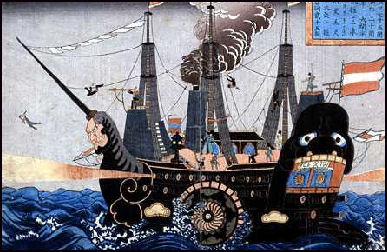




Shōgun uses straightforward storytelling techniques to keep readers riveted as they imagine themselves in the position of the English pilot. Instead, the pilot becomes embroiled in Japanese politics as Lord Toranaga Yoshi employs him as his secret weapon. Shōgun tells the story of an English pilot, John Blackthorne, in charge of five Dutch ships whose purpose is to break the Portuguese monopoly on Japanese trade. In addition to penning a good book to curl up with, Clavell built a bridge of understanding from West to East by fictionalizing a historical encounter between them. Clavell's survival of a Japanese death camp gave him unique insight into human behavior and cultural differences, enabling him to produce a truly gripping story. Such features make Clavell an "oldfashioned storyteller" who spins captivating yarns rather than an artiste like Virginia Woolf or Thomas Pynchon. The novel contains war, trade disputes, cultural clash, passion, death, and descriptions of beauty that have kept readers up until dawn. Just don't watch the 2-hour mess that is on video.Although not considered great literature by most critics, Shōgun: A Novel of Japan made its author, James du Maresq Clavell, one of the most widely read twentieth-century novelists. It's a miracle that it came off as beautifully as it did. It will always be one of the crowning achievements for television. as it has become, but it certainly sparked an ongoing interest in Japanese history and culture in me. I don't know if I agree with the director and producers that if it wasn't for 'Shogun' sushi would not be as popular in the U.S. When you watch the bonus material, you get an idea of what a monumentally difficult project this was from the language and custom difficulties to the famous TOHO Studios being about 25 years behind the times with their equipment.not to mention the tank where the shipwreck was filmed. I was amazed that wasn't edited out in post. It was impressive up until the helicopter shadow goes right over the boat and the water!. The only other "ouch" moment, for me, came in the opening shot of the "Erasmus" being filmed from a helicopter with Orson Welles narration. It took a while to get used to the seams and wrinkled skullcaps and the makeup that didn't really match. Now that it's out on DVD, how could I resist? Seeing it on a much bigger screen than existed in the early 80's, I immediately was appalled by the bad hair pieces of almost all of the Japanese actors. I was like millions of other viewers who made sure they were home night after night to see this epic. I first saw the mini-series on TV when it came out.


 0 kommentar(er)
0 kommentar(er)
